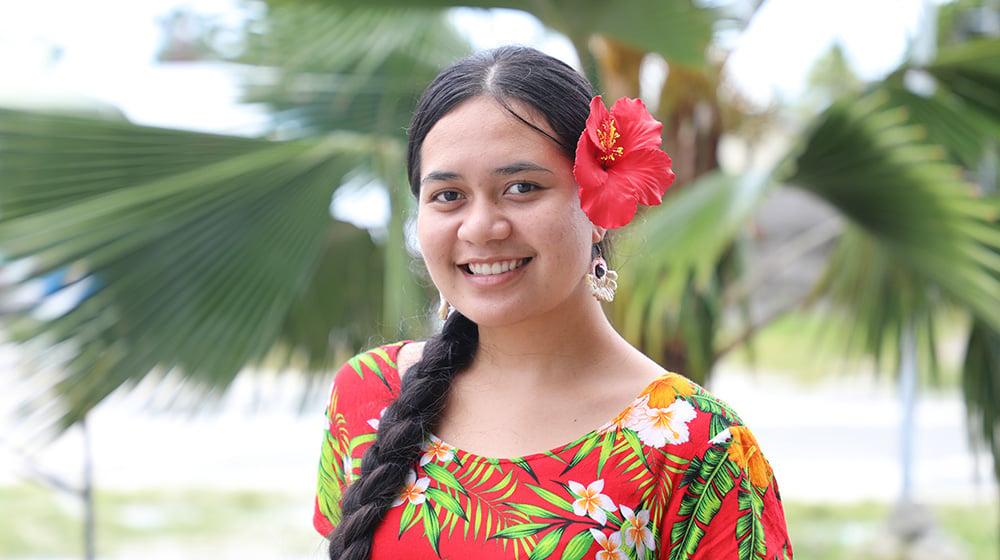Baniti’s activism journey began when she won the title of Miss Kiribati in 2020. Using this platform, she engaged in community service and used her public engagements to raise awareness of gender-based violence. Understanding the interconnectedness of social and environmental issues, she became an advocate for climate action as well.
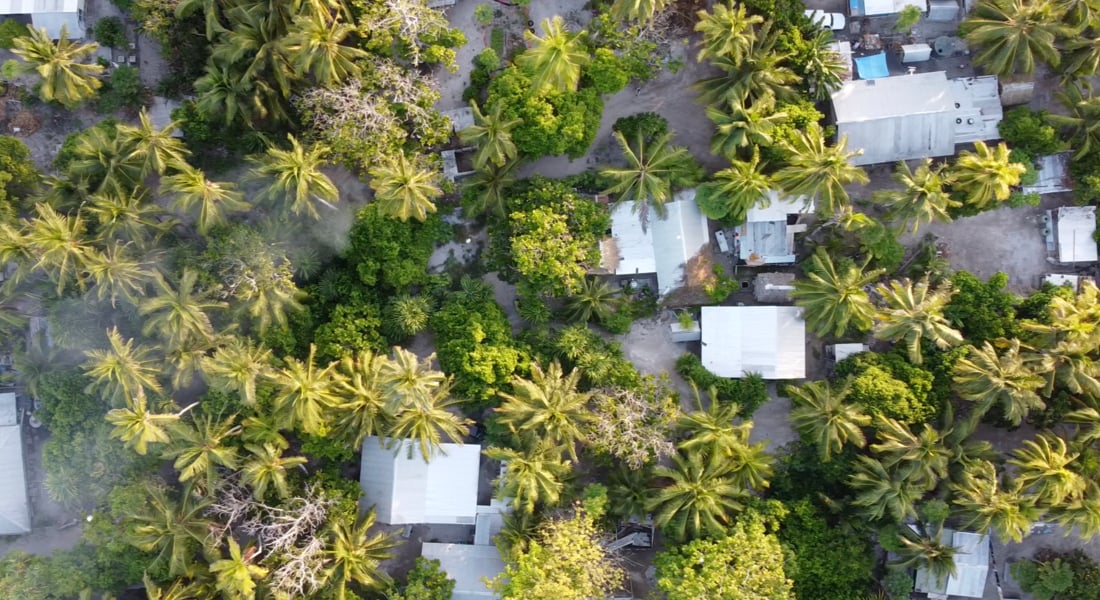
It was in 2022 that Baniti herself launched the Tungaru Action Club, focusing on empowering young people with knowledge about climate change and life skills. In the same year, she represented Kiribati as the only youth delegate as part of the national delegation during COP27. “One voice alone was not enough,” she says "To make a bigger impact, we needed to raise more youth voices."
The next year at COP28, Kiribati had its first-ever six-member youth delegation – and their voices were heard loud and clear as the President of the Republic of Kiribati delivered the high-level national statement, calling on world leaders to enhance the health, safety, and well-being of young people.
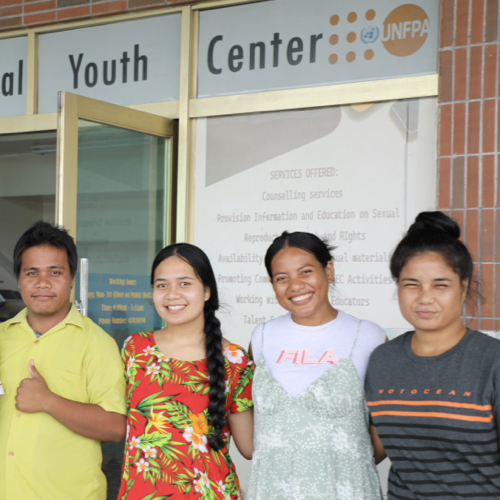
|
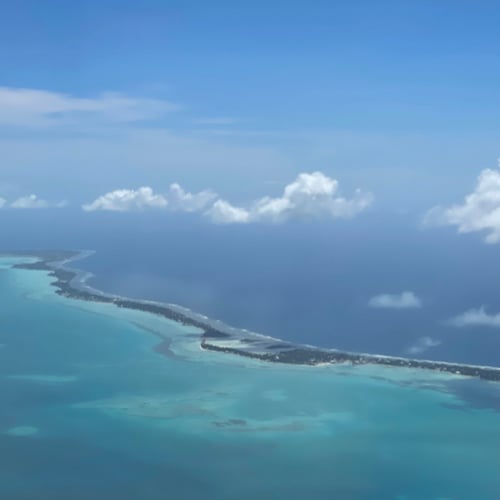
|
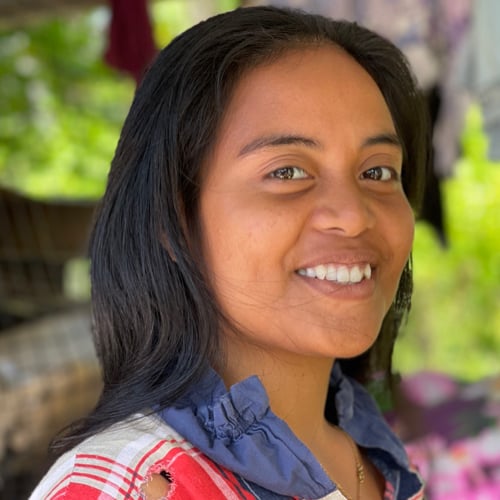
|
Today, Baniti stands at the forefront of youth leadership in the island nation, advocating for climate action and gender equality while working to create impactful change within her community.
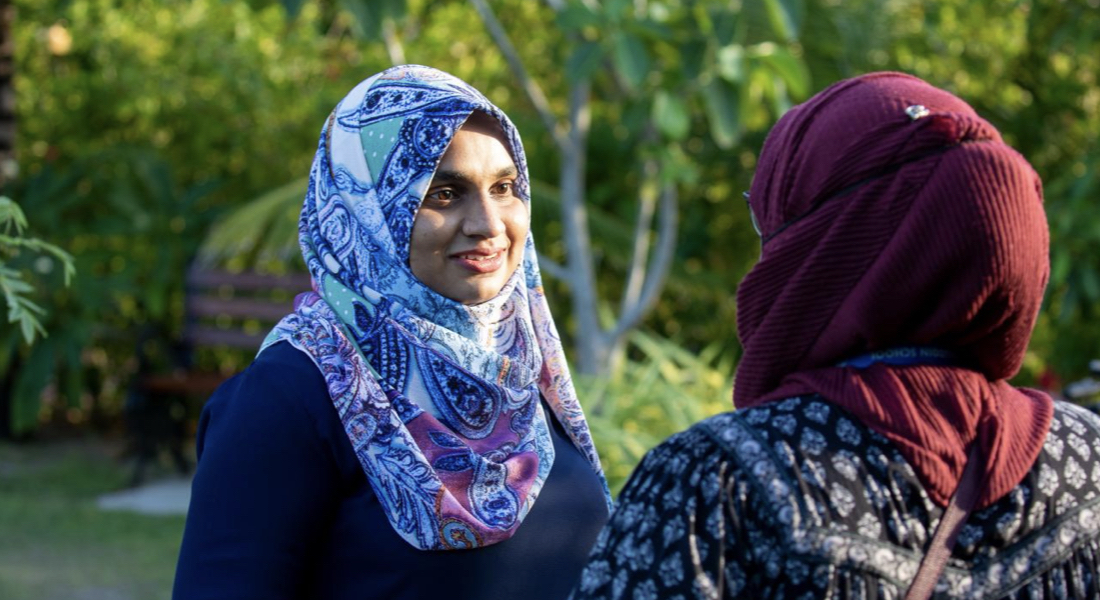
Meanwhile, in the islands of South Asia, Hamsha Hussain is leading climate action by raising awareness on the proper disposal of waste in the Maldives. Exploring new solutions to reduce waste, Hamsha is helping women and girls find sustainable solutions for their menstrual hygiene and health needs.
An architect by profession, she is a climate advocate and co-founder of Zero Waste Maldives, a non-government organisation promoting a “Zero Waste Low Impact Lifestyle in the Maldives.” Hamsha’s vision is the proper disposal of waste through education and awareness, and through the provision of alternatives as well as ‘waste to wealth’ programmes.
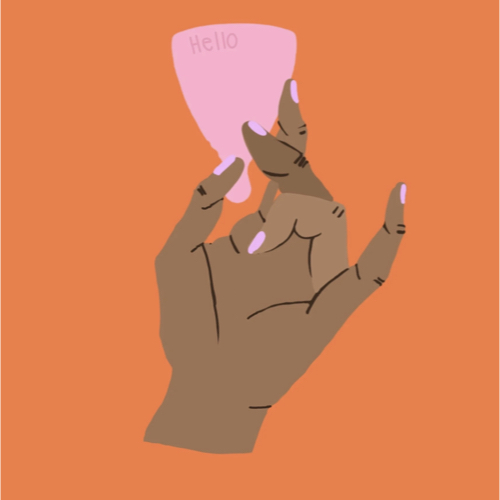
|
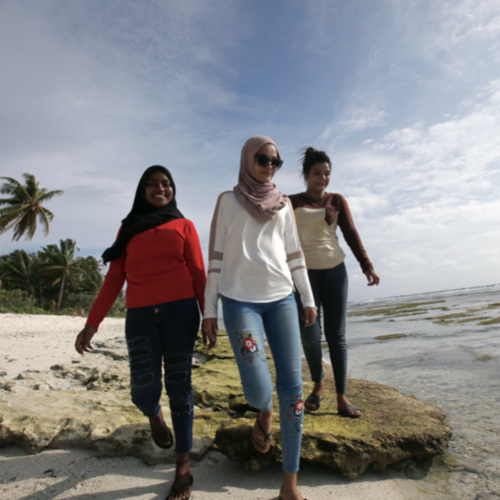
|

|
She partnered with UNFPA to work on a pilot project that links waste reduction and climate action to menstrual health – the ‘Cupvert Project’. This project has given her a platform to raise awareness on these issues and introduce sustainable solutions to meet the needs of women and girls.
Apart from being climate activists, Baniti and Hamsha both yield from Small Island Developing States (SIDS) – a distinct group of nations that are particularly at risk to the adverse impacts of climate change.
The vulnerability of SIDS to economic, social and environmental shocks, combined with their remote geographic locations and the increasing frequency and scale of natural disasters, continue to critically hinder the progress and development of their island communities.
These challenges further exacerbate the discrimination and inequalities that women and girls face, making them more vulnerable to health and safety risks.
UNFPA, together with its partners, works with young people like Baniti and Hamsha to ensure the sexual and reproductive rights and choices of women and girls are not overlooked, especially during climate crises.
The 4th International Conference on Small Island Developing States which coincides with World Environment Day, is a reminder that young people need to be placed at the core of our efforts to foster more inclusive and sustainable development across SIDS, and beyond, paving the way for a future where every young person’s potential is fulfilled through collective action.
“Extreme weather events jeopardize the security and well-being of our youth"
-Kiribati high-level national statement at COP28
"The COVID-19 pandemic taught us a valuable lesson," says Baniti. "That through collective action, we can unite, act and deliver the same for the climate agenda. I applaud the UN’s promise to our youth at this COP to do everything to secure their future on our islands. I strongly urge my fellow leaders to place youth at the forefront of our decisions so we can build a resilient, prosperous and sustainable future.”
Island VoicesEmpowering women and girls in Small Island Developing States across Asia and the Pacific |

|
Learn More
Minimum Initial Service Package - The minimum, life-saving sexual and reproductive health needs that humanitarians must address at onset of an emergency
GBV Area of Responsibility brings together non-governmental organisations, UN agencies, academics and others under the shared objective of ensuring life-saving, predictable, accountable and effective GBV prevention, risk mitigation and response in emergencies, both natural disaster and conflict-related humanitarian contexts)

